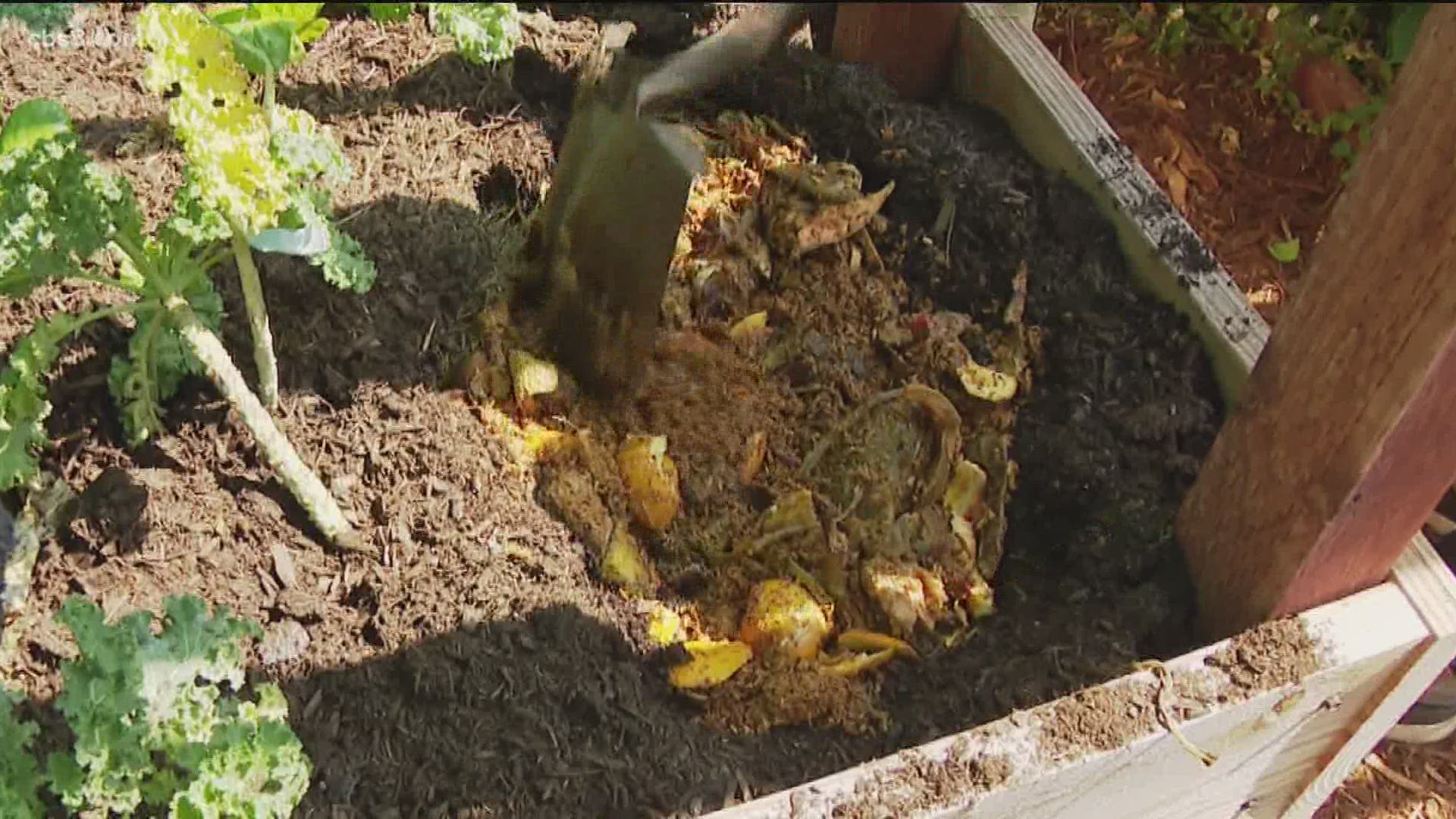SAN DIEGO — With the new trash law going into effect statewide starting January 1, 2022, our food waste will need to be separated out. This may seem intimidating to some people, or even unnecessary. But the Zero Waste Family has been doing it for years and they say it’s about time the law changes.
News 8’s Neda Iranpour takes us to their house where they’ve mastered composting to a science… literally.
The Zero Waste Family grows most of the food they eat in their front and backyard. They live on an average-sized city lot in the Talmadge neighborhood of San Diego. But what they have created here is far from average.
We joined Fredricka Syren in her front garden as she picked some basil and parsley for a tomato sauce that she’s cooking.
Two adults and 3 kids are living off their land, with the goal of zero waste. They use what they grow to create delicious meals for their family, friends, and neighbors.
Fredricka said, “Our garden brings a community together. I can share vegetables and we can come together and make food together and share the bounty of it.”
Fredricka and her husband James Harker are proof that you can still enjoy riches with minimal waste. And, as we’re learning from them, things like composting don’t require much work at all.
“It’s a very beautiful circle of life and I think you appreciate it more when you grow it,” Fredricka said.
And they actually appreciate the food scraps.
“We have to think of it this way - food that goes to a landfill becomes pure poison and food that goes to compost becomes pure nutrients for the soil,” she explains.
James said, “It doesn’t compost at a landfill like most people think. It actually creates methane gas which is super, super bad for the air and the planet.”
James is the composting guru. He has seen the benefits for years and he shared a couple of different composting techniques.
One specifically gets him super excited… the worms.
“What I’ve created here is a homemade worm bin. If you move this [dirt] around you’ll find we’ve got lots and lots of worms,” James said.
The worms are also happy since they’re constantly being fed with food scraps like lettuce and strawberries, “They eat multiple times their weight every day. So they’re basically producing worm castings for your garden.”
He started with 500 worms and now has thousands in his bin. All of the rich compost filled with worms will go into the garden where it will help their nutrient-rich garden grow.
He also has this other technique, using a type of bran that he adds to an air-tight bin full of food waste like bread and tomato vines.
It takes three weeks for the food to ferment enough to add to his soil.
And after three weeks of being in the soil, the food disappears and he can plant whatever he wants in that spot, “take all that extra food we’re not eating and at least direct it someplace that’s doing good,” he said.
Because it all comes right back around, giving more life to what they grow, “we grow actually 37 different vegetables and herbs and 17 different berries and fruits,” according to Fredricka.
And it all ends up in the kitchen where more magic happens. And from that, inevitably, they’ll have more food waste. Where it then goes full circle, back into the garden.
James said, “When anyone asks me what’s one thing I can do? I say, compost.”
And that’s how they become known as the Zero Waste Family.
Not everyone is expected to take on their more elaborate system of composting and gardening. In fact, the city is going to make it as easy as possible for all businesses and residents to follow the new state law.
You do not need worms, you do not even need to buy bins.
By summer 2021, San Diego city officials say they will give most residents in single-family homes a small air-tight bin that you can put in the freezer or under your sink.
Fill it with food waste and a few times a week, you can dump it into a larger organic waste bin outside. And the city will pick it up weekly with your normal trash service. Several sites will also eventually offer free compost.
WATCH RELATED: Family of 5 lives zero-waste life in San Diego on tiny urban homestead just minutes off the freeway (May 2020)

